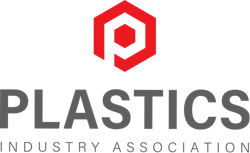PLASTICS releases survey on consumer support for recycling
By PMM Staff
A large majority of consumers support including plastic products or packaging made via advanced recycling methods with similar products produced with mechanical recycling methods when determining whether they should be considered “recyclable” or made from “recycled material,” according to a new survey released by the Plastics Industry Association (PLASTICS).
The Federal Trade Commission (FTC) is accepting comments on potential changes to its “Green Guides,” provide guidance on how consumers interpret environmental marketing claims. PLASTICS will submit the survey to the FTC for consideration. The survey, conducted by RG Strategies, draws its results from 1,200 interviews held between Feb. 22 and Feb. 28 of this year.
One of the survey questions posed to participants was: “(MECHANICAL) In [one/another] method used to address waste, used plastics can be separated from other waste and cleaned, ground, and then reformed to make new products. (ADVANCED) In [one/another] method used to address waste, used plastics can be broken down into smaller molecules that can be used to make new products, including new plastics. There is no burning of plastics involved in these processes. Do you believe this is an example of recycling or not?”
To these questions, 93 percent of respondents said of mechanical recycling “Yes, this is recycling,” 4 percent replied “No, this isn’t recycling,” and 3 percent responded “Not sure;” and for advanced recycling, responses were 91 percent “Yes, this is recycling,” 5 percent “No, this isn’t recycling,” and 5 percent “Not sure.” However, the questions in the survey did not spell out the price or energy demands of the different methods of recycling,
“Our goal is to build a more circular economy, and that means enabling consumers to easily find and purchase products and packaging that are designed to be recycled or made from recycled content,” said Matt Seaholm, president and CEO of PLASTICS. “Consumers don’t discriminate against technologies like advanced recycling, which enable them to recycle more of the plastic products they use. They want labels or branding to be simple and consistent and are more focused on keeping plastics in a recycling bin and out of the landfill.”
Among other findings in the survey, 62 percent of respondents said they believe single-use plastics are important to quality of life, vs. 36 percent who said single-use plastics are not important, and 2 percent of respondents who were “Not sure.”
When presented with the statement “I care more that a plastic item doesn’t end up in the trash or litter than which process is used to recycle the item,” 90 percent of respondents agreed, 7 percent disagreed and 3 percent were not sure.
The survey delved into other opinions on recycling, finding that 95 percent of respondents agree with the statement: “If a product is labeled as recyclable, I would assume that means that it is technically capable of being recycled.” Among other expectations the survey revealed, 33 percent of respondents said they expect a product labeled as recyclable can be recycled anywhere, regardless of local systems, while 53 percent said they expect it can only be recycled in some or most areas, and 10 percent said they didn’t expect that product to be recyclable.
Respondents showed the most uncertainty over questions about mass balance, with 24 percent saying they weren’t sure if it is a valid way to measure recycled content, and an equal percentage reporting they were unsure that they would consider materials from plastics certified using a mass balance system to be better, worse or the same as other recycled content found in products or packaging.
The survey question was worded this way: “In advanced recycling, plastic waste collected for recycling may be mixed with new materials to produce new products or other raw materials. It is impossible to track the molecules that originated from the plastic waste to those new products. So, advanced recyclers use an accounting practice leveraged in sustainable farming and renewable energy, called mass balance. Mass balance rules are set by a third-party certification system and only allow producers to take credit for the amount of plastic waste that was recycled as part of their system. Do you agree or disagree that this is a valid way to measure recycled content?”
When asked: “Would you consider it more confusing or less confusing if federal guidelines required different labels for recycled products certified using the ‘mass balance’ system versus other accounting standards, or would it make no difference at all?” — 20 percent said much more confusing, 24 percent said somewhat more confusing, 32 percent saw no difference, 6 percent said somewhat less confusing, another 6 percent said much less confusing, and 12 percent were not sure.
The survey conducted by RG Strategies used mixed modes of telephone (landlines and mobile) and text-to-web. Respondents were U.S. voters. The survey was conducted in English and Spanish. The margin of the sampling error is ±2.8 percent at the 95 percent confidence level.
